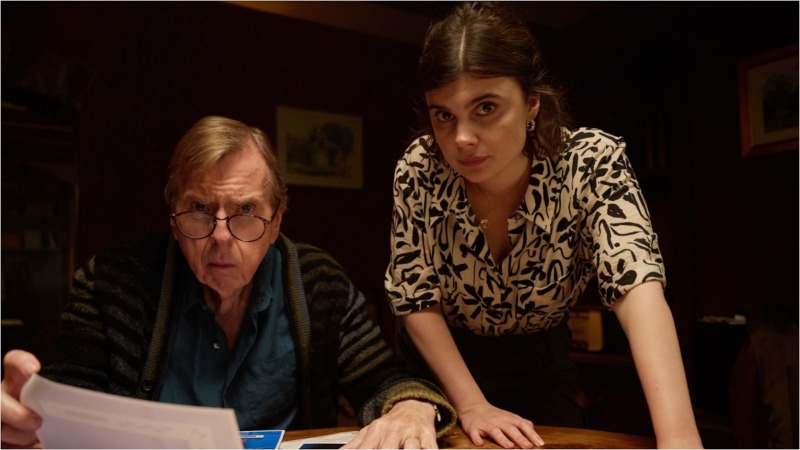A Former TV Sleuth Turns Real-Life Detective In Witty Cozy Crime Drama Death Valley
Photo: Courtesy of BritBox
One of the most entertaining trends in the world of British procedurals in recent years is the idea that you don’t have to be Sherlock Holmes to solve crimes. Heck, in a fairly significant number of the U.K.’s most popular dramas, you don’t need to have done much beyond watch a few episodes of Law & Order before you’re free to jump right into chasing murderers in your spare time. Shows like Grantchester, Agatha Raisin, Harry Wild, Sister Boniface Mysteries, and dozens more all follow the stories of normal people with day jobs who find themselves using their particular areas of specialized knowledge to help out local police. And though the six-part drama Death Valley is merely the latest addition to the seemingly never-ending (and steadily growing) list of these mysteries, its unique central hook makes its familiar beats feel fresh.
Don’t be fooled by its nondescript, vaguely gritty title, though; like fellow BritBox series Ludwig, Death Valley is a mystery series made with non-mystery buffs in mind. Nothing about its stories is particularly new, its crimes are fairly pedestrian, and the specifics of its cases are generally the least important thing about any given episode we’re watching. The premise probably shouldn’t work as well as it does. But the show is surprisingly warm and funny, full of genuine love for its characters and a willingness to poke gentle fun at the sort of story it’s telling. (Plus, the gorgeous views of various slices of Welsh countryside certainly don’t hurt.)
The story follows DS Janie Mallowan (Gwyneth Keyworth), a perky, go-getter of an officer who, in the course of investigating the suicide of a local property developer, discovers that her favorite actor happens to live next door to the victim. John Chapel (Timothy Spall) made his name in a long-running police procedural where he played the eponymous detective known as Caesar, a mustache-adorned crime-solving savant who bears no small resemblance to Agatha Christie’s Hercule Poirot. Now, however, Chapel is a recluse with a ragged beard and generally unkempt demeanor who actively dislikes all his neighbors. But as Mallowan is quick to discover—after some extended and enthusiastic fangirling over getting to meet her hero—Chapel didn’t leave his sleuthing abilities behind when the show ended, and is quick to provide some theories about what really happened—namely that his neighbor’s death was actually a murder.
What happens next shouldn’t surprise anyone: The unlikeliest of crime-solving duos is formed, as Janie keeps turning to Chapel for help with her cases (a death in her mom’s walking group, a body discovered at a wedding) and the former actor displays e a real gift for understanding human motivation and emotion. (He’s also not above leaning into his celebrity among the locals to gain access, time, or confidences he likely wouldn’t get otherwise.) Sure, you’ll probably have to suspend some disbelief that an actor of Chapel’s supposed stature could start solving crimes for fun and not make the papers while doing it—imagine Benedict Cumberbatch throwing on a deerstalker and tackling murders in real life—but the show has so much fun with the concept that it’s easy to ignore.
The relationship between the series’ leads ultimately evolves past Janie’s overt hero worship, deepening and becoming more complicated as the pair gets better at solving crimes together. The weekly cases are bolstered by a handful of season-long emotional arcs, involving Chapel’s grief over his late wife and Janie’s attempt to get on with her life in the wake of the loss of her best friend. Things are never maudlin, of course—it’s not that kind of show. But there’s occasionally a bittersweet flavoring to Chapel and Janie’s interactions that makes the rest of the admittedly flimsy series feel more substantial than it otherwise might.
-

-

-

-

-

-

-

-

-

-

-

-

-

-

-

-

-

-

-

-

-

-

-

-

-

-

-

-

-

-

-

-

-

-

-

-

-

-

-

-








































